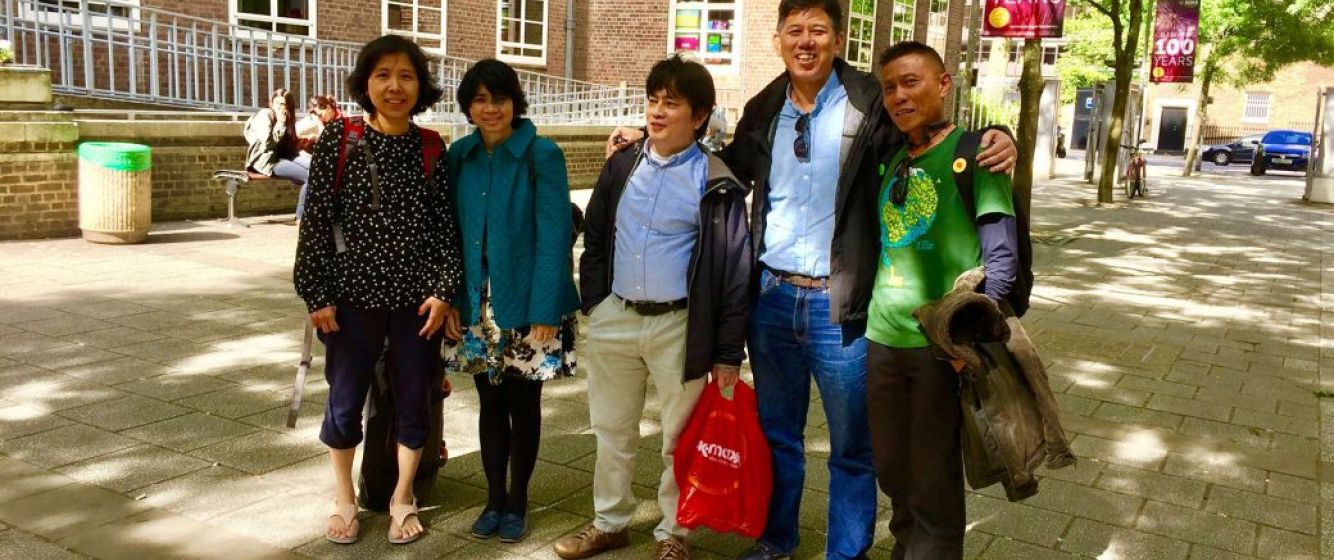During the London meeting, one of the exiles jokingly said ‘we are ရေမျောကမ်းတင်’ meaning floating objects coming to rest ashore. A word usually reserved for the economically destitute who cannot afford to settle in one place has been reclaimed by a political exile albeit lightheartedly to depict their capricious and helpless lives. After the meeting, I realized that the place and time of our meeting in May 2017 were both important to contextualize some of the words and tones of the conversation we had.
Myanmar held in 2010 the first election in twenty years but Aung San Suu Kyi and her party, National League for Democracy (NLD) boycotted the election. They however decided to contest in the by-election in April 2011 and won 41 out of 44 seats. Identity and politics of many Burmese exiles are closely intertwined with Aung San Suu Kyi and NLD though the two groups started their political journeys very differently. In general, the former mobilized masses, staged direct actions culminating in 1988 nationwide protests and fled to the borders when their movement was crushed. NLD led by Aung San Suu Kyi was more interested in bringing about change and democracy through the existing frameworks. While students regarded support and participation of the masses in street protests as their movement legitimacy, NLD saw participation in the formal political process, though half-heartedly, as their legitimacy and survival. When NLD decided to contest the first democratic election in 1990, students dropped their various plans—to contest as their own party (Democratic Party for a New Society-DPNS) or to boycott the election altogether—and supported NLD so as not to split votes. Though NLD won by landslide, the military refused to recognize the outcomes of the election and hand over the power. Fast forward 25 years, now middle-aged men and women, Burmese students who once supported NLD, at least four out of five from our conversation, are disillusioned at best and disappointed at worst. Icon of the opposition or the only opposition in what is known as aboveground politics or politics within the legal or allowed framework, NLD, was a lifeline for exiles, a bridge between their adopted land and their motherland. Many hoped that NLD when they became the government themselves would welcome back the exiles. But exiles continued to find themselves in limbo as Aung San Suu Kyi declared that exiles must follow the existing procedures to reclaim their right to live in Burma, or in other words, to reapply for the national identity or registration card (NRC) that proves that they are indeed legitimate citizens of the country and are therefore allowed to live back there. One exile, who now works at Irrawaddy Media in Yangon went back to Burma after the 2011 elections, did apply for an NRC (many exiles either lost or did not have their NRCs), but was still waiting for one since 2012. Another exile, who was married to a foreigner, cannot even apply for an NRC, since marrying a foreigner was considered illegal. Amidst the hypes and in a cacophony of what I even want to call ‘fetish democracy’, exiles, once champions and foot soldiers of Burmese democracy, ironically found themselves void of democratic rights and failed by their old democratic (non-exilic) colleagues. In this context, the word ရေမျောကမ်းတင် one floating in water to come and rest ashore is a fitting term to describe the state of one rejected again and again by the government they fought against and the one they once worked with. Next week’s post will focus on the meaning of the word ‘mental exile’ used by Burmese exiles.
Tharaphi Than
